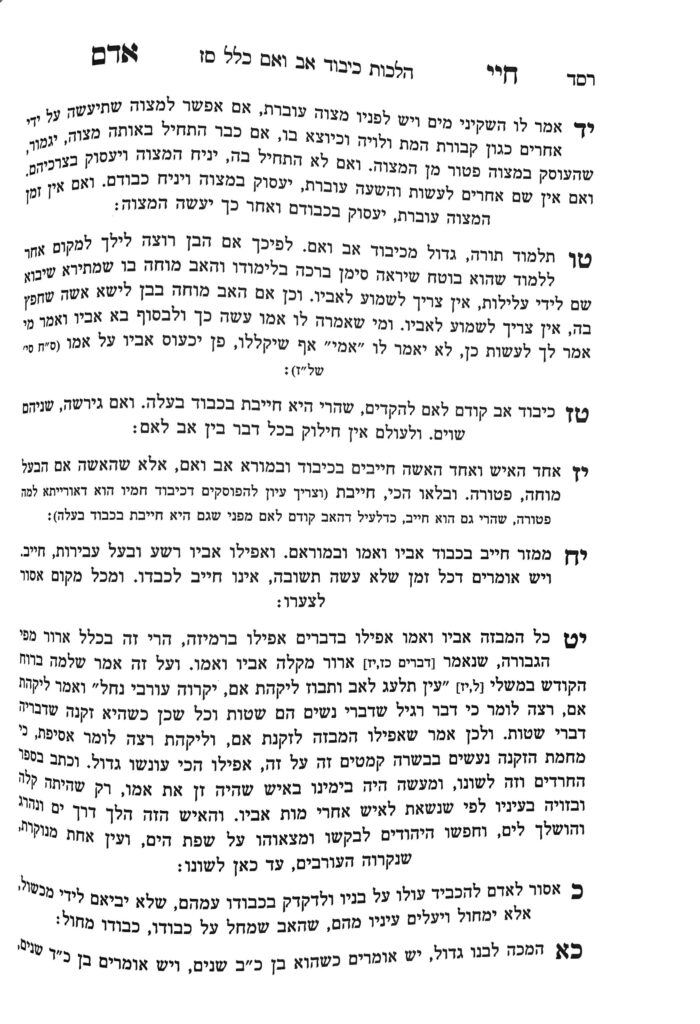We are continuing in siman 16, discussing conflict between kibud av and kibud eim. We learned that, although husband and wife must both treat each other with the greatest of kavod, when there is a conflict between kibud av and kibud eim, Chazal teach us that kibud eim takes precedence. (Unless they are divorced, in which case a child can choose either.) We left off with a question as to why this is so.
To further the question, there is another halacha which seems to contradict our halacha. If a child needs to perform both kibud av and kibud of their grandfather (e.g., they both ask for water), one could argue that since the grandson and father both have a chiyuv to be mechabeid the grandfather, the grandfather should take precedence over the father. However, the Rema, in siman 240:24, writes that the kibud av takes precedence. This halacha seems to be the opposite of our case, where Chazal told us that since both the child and wife have an element of kibud towards the father/husband, kibud av takes precedence.
The second question was posed by the Teshuva Meiahavah, one of the great achronim in Hungary. Rav Scheinberg gives an answer to his question. He suggests that the chiyuv to be mechabeid one’s grandfather is not an independent, direct chiyuv, but an indirect chiyuv as a result of the chiyuv to be mechabeid one’s father. It is certainly appropriate to be mechabeid one’s grandfather because he is his father’s father. Halachically, it is an expression of the chiyuv kavod to one’s father, and not an independent chiyuv. Therefore, it cannot override the primary chiyuv from which it stems–kibud av–and therefore kibud av takes precedence.
To answer our original question, about preceding kibud av over kibud eim, Rav Scheinberg explains that the chiyuv kibud av actually contains two layers of chiyuv. The first is the chiyuv kibud av as we have understood it until now. There is a second layer of chiyuv, which is to be mechabeid one’s mother’s husband, even if it were not his father (i.e., a stepfather), by dint of the fact that this man is his mother’s husband. This secondary chiyuv is similar to the chiyuv to be mechabeid one’s grandfather, and if it were only for the secondary chiyuv, the kibud eim would certainly precede. However, since there are two layers of chiyuv regarding the father–one’s own chiyuv of kibud av, and this secondary chiyuv one’s mother’s husband–the kibud av takes precedence.
Summary
When there is a conflict between kibud av and kibud eim, kibud av takes precedence, because the child has two chiyuvim vis a vis the father and only one vis a vis the mother.
When there is a conflict between kibud av and kibud for a grandfather, the kibud av takes precedence, because the chiyuv kibud for a grandfather only exists as an extension of kibud av.



